‘International Day of Action for Women’s Health’ is observed all around the world on 28th of May. This week You! highlights some crucial women-related health issues...
‘International Day of Action for Women’s Health’ is observed all around the world on 28th of May. This week You! highlights some crucial women-related health issues...
There was a time when issues related to women’s physical and mental health were ignored. However, with time numerous efforts have been made to push away taboos and bring attention to the problems women face. Amongst these initiatives are certain days that are dedicated to various concerns of women and are observed every year. These special observances are created by the United Nations (UN) in order to promote international awareness and actions on health conditions, medical illnesses and social issues that are considered a taboo. One such day that is to be commemorated this month is the International Day of Action for Women’s Health. Celebrated every year on May 28th, the day is observed to remind the world that women’s health matters.
How it all started
In 1987, during the fourth International Women’s Health Meeting in Costa Rica, women’s rights activists proposed to celebrate 28th of May as the International Day of Action for Women’s Health. In 1999, it was officially recognised by the government of South Africa. The International Day of Action on Women’s Health is a day to call for action towards the improvisation of women’s health. This was done because ‘women’s health’ has often been reduced to a limited understanding and numerous important issues they face are ignored. Today the day is celebrated all over the world and seminars and programmes are held to raise awareness.
May 28th has been commemorated by women’s health advocates and their communities since 1987 and has been crucial in the Sexual and Reproductive Health and Rights (SRHR) movement building. It is a special day as the women’s health takes a centre stage. It is therefore an occasion to remind the Ministries of Health, ruling presidents, governors, parliamentarians, as well as internationals agencies and for-profit companies of their commitments to women’s health and rights. This includes, in particular, the recognition of the concepts of sexuality, sexual rights and reproductive rights and health frameworks at national, regional and international level.
Why the day matters
Even though the world has become technologically advanced, there are still a number of diseases that require attention. There are still places in the world where the basic medical treatment and proper health care are not easily accessible - resulting in women and children suffering the most. Expectant mothers often lose their lives due to negligence during pregnancy and child birth. Not only this, infants are usually handicapped as the mother was not given proper care, adequate nutrients and the right medicine when she was expecting.
Besides the inadequate health care services, the sexual inequalities also make women less accessible to the medication required. The International Day of Action on Women’s Health is a day to call for action towards the improvisation of women’s health. The day also calls for women to have a right to protect themselves from sexually transmitted diseases like AIDS by practicing safe sex. According to the United Nations Development Fund for Women (UNIFEM). “One of the most powerful HIV vaccines today is women’s empowerment... it is the key to reversing the epidemic.”
Most common health issues
Keeping the importance of ‘International Day of Action for Women’s Health’ in mind You! has highlighted nine women related issues that require awareness and need to be focused on.
Reproductive health
Sexual and reproductive health problems are responsible for one third of health issues for women between the ages of 15 and 44 years. Unsafe sex is a major risk factor - particularly among women and girls in developing countries. This is why it is so important to provide services to the 222 million women who aren’t getting the contraception services they need.
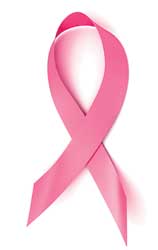 Cancer
Cancer
Two of the most common cancers affecting women are breast and cervical cancers. Detecting both these cancers early is the key to keeping women alive and healthy. The latest global figures show that around half a million women die from cervical cancer and half a million from breast cancer each year. The vast majority of these deaths occur in low and middle income countries where screening, prevention and treatment are almost non-existent, and where vaccination against human papilloma virus needs to take hold.
Mental health
Evidence suggests that women are more prone than men to experience anxiety, depression, and somatic complaints - physical symptoms that cannot be explained medically. Depression is the most common mental health problem among women and suicide a leading cause of death among women under 60. Helping sensitise women to mental health issues, and giving them the confidence to seek assistance, is vital.
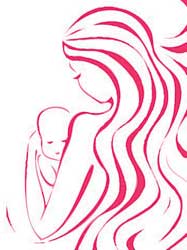 Maternal health
Maternal health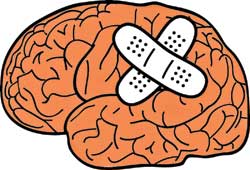
Many women are now benefiting from massive improvements in care during pregnancy and childbirth introduced in the last century. But those benefits do not extend everywhere and in 2013, almost 300 000 women died from complications in pregnancy and childbirth. The day mostly deals with the reproductive health because pregnancy related health issues and death in women are far more in number than we imagine. The death and complication of pregnancy is more in the underdeveloped and the developing countries and it is estimated that every year about 600,000 women around the world are losing their lives due to these issues. Most of these deaths could have been prevented, only if women had access to family planning and to some basic health services.
Sexually transmitted infections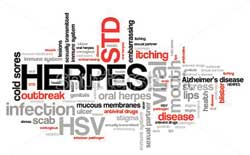
It is vital to do a better job of preventing and treating diseases like gonorrhoea, Chlamydia and syphilis. Untreated syphilis is responsible for more than 200,000 stillbirths and early foetal deaths every year, and for the deaths of over 90,000 newborns.
Forced sterilization
Forced sterilization involves surgically removing or disabling reproductive organs without consent. Conducting such sterilizations is a violation of human rights and medical ethics. Throughout the 20th century, women’s sterilization was the chosen method for population control and women across the globe have been forced or coerced by medical personnel to submit to permanent sterilization procedures. Forced sterilization is also often prescribed to young women living with HIV/AIDS, gender non-conforming women, and girls with disabilities. In a number of countries, the victims of coerced sterilization count in hundreds of thousands. Forcefully ending a woman’s reproductive capacity leads to a number of dire consequences such as extreme social isolation, family discord or abandonment, and lifelong grief. Unfortunately, cases of forced and coerced sterilization are still being reported all over the world.
Obstetric violence
Obstetric violence is related to lack of proper health care during pregnancy, childbirth, and post-partum. Throughout the course of her pregnancy the woman is in need of good quality health care. However, evidence shows that there are many instances when women are not only denied access to good quality medical care but are also treated inhumanely by the service providers. Obstetric violence can be manifested through: the denial of treatment, the disregard of a woman’s needs and pain, verbal humiliations, invasive practices, physical violence, unnecessary use of medication and forced medical intervention. Other patterns of obstetric violence include abuse of medicalization and pathologizing natural processes of birth. Women living in rural areas are particularly vulnerable to this type of obstetric violence.
HIV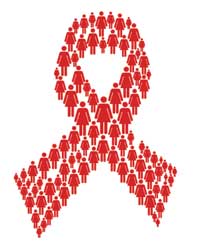
Three decades into the AIDS epidemic, it is young women who bear the brunt of new HIV infections. Too many young women still struggle to protect themselves against sexual transmission of HIV and to get the treatment they require.
 The denial of access to contraceptives
The denial of access to contraceptives
Every woman has the right to decide when and if she wants to have a child. However, there are many countries that legislate and restrict access to basic sexual and reproductive health services, such as access to contraceptives or emergency contraception. This act is considered as a violation of basic human rights. Such restrictions have immediate and harmful effects on women’s health and take away their right to live free from emotional, physical and psychological torture. Moreover, lack of access to sexual and reproductive health services lead to unwanted pregnancies and unsafe abortions.